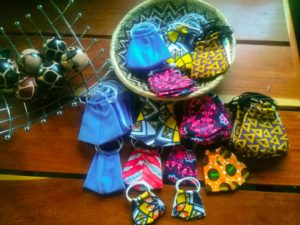
Governments across Africa have taken measures to contain the outbreak of COVID-19. The current flood of information is mainly dominated by official sources, media and expert opinions. But how do Africans see the current situation? What do they know about the coronavirus and how are their lives affected? As the KFIBS Africa Research Unit, we were curious to hear the personal stories. This series of blog entries presents answers from people from different countries to questions about personal changes in life, political reactions and their sources of information. We would like to thank everyone who contributed to these articles.
* * *
The Poorest Are Hit Hardest
In many African countries, drastic measures have been taken that influence people’s lives a lot. Even in countries which are not officially on lockdown the population is advised to practice social distancing, reduce their movement to a minimum and only do the most necessary things. But not everyone is able to implement this, as Mildred Johnson from Namibia told us:
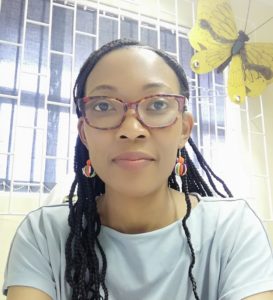
“Very low-income earners and self-employed people are hit hardest, because they depend on customers to earn a living. For example, street vendors and open market operators in particular struggle now that their source of income has been taken away from them as a result of COVID-19 lockdown restrictions.”
The lack of financial reserves among households is one of the main reasons why many governments refrained from ordering complete isolation or tried to mitigate the devastating effects for day labourers with free food supplies from the government, as for example in Senegal. In South Africa, hard initial rules were withdrawn for similar reasons. However, the economic consequences are not the only problem faced by many people in the closure, making it difficult for them to comply with the recommended measures: “For people living in informal settlements, it is a challenge to distance themselves socially. Depending on the house structure, accommodation can be uncomfortable because the corrugated iron gets very hot during the day. They cannot stay inside under such conditions”, Mildred reports.

“We do not know how long the situation will last, so it’s difficult to plan spending. In many African countries, unemployment is high and the informal sector occupies a large share of the labour market. As a result, the political decision on confinement and curfews have deprived many households of their income and generated domestic violence. There is a risk of public disorder, especially among the most disadvantaged people, who find themselves in a dilemma between starvation and death by corona.”
Social Distancing and Working from Home
These problems, which make it almost impossible for many people to live in a lockdown for more than a few days, seem to be the main reasons why several African governments have already announced a relaxation of the rules. Nevertheless, social distancing is still advisable for those who can afford it. But staying at home is not without its pitfalls. Mildred herself, who works as an educator, currently lives with her little niece and nephew who require home schooling (home education). Sometimes she finds it difficult to concentrate on work. Like her, Mwansa Mungela from Zambia is also currently working from home. However, he has already noticed how quickly his Internet data bundles are being used up by several online meetings and other joint efforts. These are additional costs not covered by most employers. Although the network is well developed, power failures are commonplace for many people. A problem which many of our contacts have to face. However, Mwansa does not see the new situation purely negative:
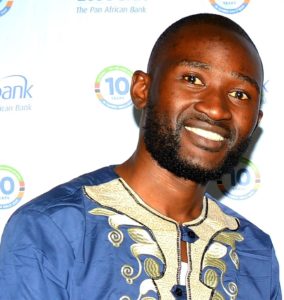
“My daily routine of catching a bus to work very early in the morning is now suspended and I do not worry about beating the morning traffic. I therefore stay longer in bed and eat more food than I have always done. Since I am usually not very physically tired by the end of every day of working from home, I have adopted the habit of jogging or cycling every evening.”
The New Daily Routine
Yet not everyone can work from home. For example, Deodatha Agricola from Tanzania still goes to work every day. In Tanzania there is no official lockdown but people are taking extra caution. Daily income activities are still possible, but the Tanzanian government advises to voluntarily slow down the movement, avoiding large crowds and limiting their time in public places as much as possible.
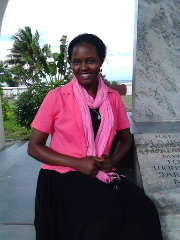
“If you go and work as normal you have to be very careful and wash your hands, sanitize as much as you can and now we also wear masks. In the beginning, some people were still ignoring because there was this notion that it is a disease of people who travel by planes. Now it has come to their senses that even people who travel in normal public transport like the Daladalas (minibuses) can get infected and that it is not connected to your job but transmitted through all human contacts and even within families. This makes people more careful. And people now know how to wash hands: Everywhere in front of shops there is a buck of water with soap and hand sanitizer, and people are doing and practicing how they are told.”
Also from other countries we were told that many take the warnings and recommendations seriously. Since face masks are often expensive, some of our interview partners told us that many people currently sew masks themselves. Among other things, colourful local fabrics such as kangas and chitenges are used.

People Should Take It More Seriously
Not everyone is aware of the situation yet and not everyone is already provided with breathing protection: Nolawit Teshome from Ethiopia wishes, just like Mildred, that her fellow human beings would adhere more to social distancing and wear face masks. Nolawit reports that her residential area in Addis Ababa is (still) very crowded and almost all shops are open, which is why she and her husband are currently refraining from going for walks with their daughter. And when they go out, they only do so with a mask and hand disinfectant in their luggage. Like Nolawit, many are worried about their relatives, especially those who belong to risk groups. The news about so many deaths in the so-called Global North is a cause of great concern to many. Nolawit says: “I am now gradually realizing that I can only do what I can and leave the rest to God.”
The Bright Side of Corona
Some of our interview partners told us that the increased time at home can bring the families closer together again, as people now spend more time at home. They finally find the peace to exchange and understand what is happening in the lives of others. However, people outside of their own household are also interested in each other: Mildred observes a great solidarity among the people in Namibia. She tells us that many individuals and businesses are donating food and sanitizers to the needy. In many places, masks are being sewn and distributed, especially to those who otherwise could not afford any.
“There are other things that now have a different significance in life. You are happy for your own health and for what you have.”
(Hastings Sichone, Zambia)
And one learns to appreciate new things like Deodatha who can enjoy riding in Daladalas for the first time because now traffic is calm and there is plenty of space in the minibuses; or Mwansa who is glad that he is no longer stuck in the morning traffic and therefore can sleep a little bit longer.
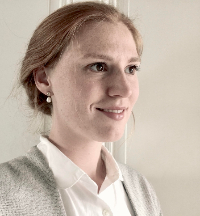
This article was written by Miriam Kalkum with the active support of Lennart P. Groscurth, Verena G. Himmelreich and Sandra M. Dürr.

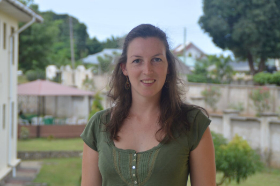

(Hinweis: Der vorliegende Blog-Beitrag gibt nicht zwingend die Meinung des KFIBS e. V. wieder.)
(Bildnachweis für Bild mit den selbst genähten Chitenge-Masken aus Sambia: Fotobestand der KFIBS-Forschungsgruppe „Afrika“)

